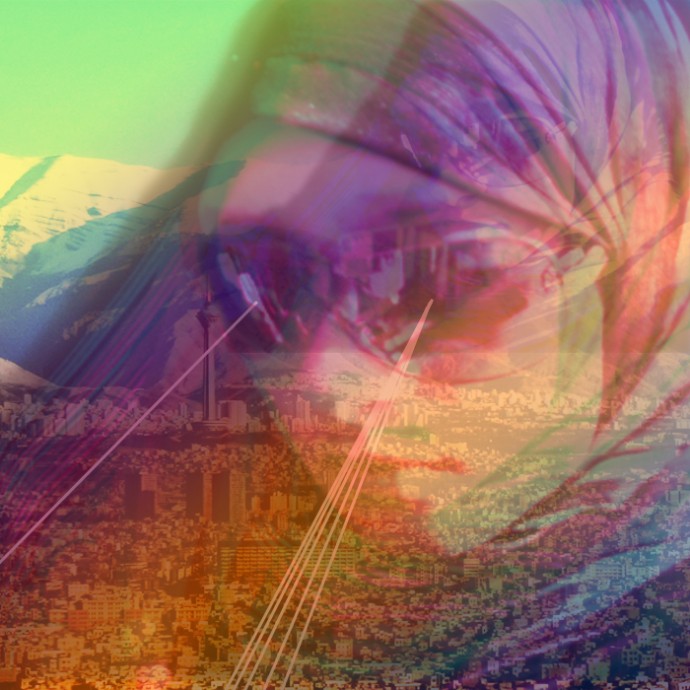The 1979 revolution in Iran passed control of the country to religious structures. These structures built a system designed to control people’s lives and suppress certain manifestations of freedom. Like a flower sprouting through the a crack in the pavement, Iranian youths are fighting for their freedoms in a state controlled by religion. Sensa Nostra interviewed Sepideh Aqazade, a young Iranian girl, who lives a party-filled life in hiding from the country’s watchful eyes.
In the media, you see Iran as a country without freedom. But in Iran, not everything is how it seems. I lived there and saw it. On the outside, you see people abiding by the strict government rules. Iran’s known for its religious regime’s influence on government policy. This is a brutal combination, and we have special organizations and agencies trying to turn Iran into an even bigger religious structure. For example, morality police called “basij” attempt to control people’s cultural lives. But a hidden, freer life exists beneath this cover.
I came here to study in university. Tehran is a big city, and, in the summer, the sun’s so hot it feels as if there’s no room to breathe. It was the during first month of summer when my friend suggested we skip classes for the day, go outside of downtown Tehran to his father’s empty garages.
In Iran, university rules are really strict. Students can be kicked out of university for small mistakes like skipping class, so, initially, I was afraid to skip class with my friend; yet, I agreed to go.
The garages were surprisingly big and so far from Tehran that no one could find us. We invited some friends from university to join us but only those we could trust. Although the basij don’t follow your every step—they exist, but it’s like they don’t—you need to make sure you’re safe and that nobody gives you up for ‘unmoral activities.’ I’ve heard a few times that basij caught students from our university, but the students were freed within twenty-four hours—laws aren’t as strict as everyone thinks. So if you’re caught, they detain you for only a night. It’s always like that.
In Iran, alcohol’s forbidden. You need to buy it in black markets. Similarly, although you can purchase any type of clothing in Tehran, you’re not allowed to wear it. This leads to Iranian women wearing a lot of make-up in everyday life. Extreme amounts of make-up, I’d say. It’s just, we are not allowed to wear what we want and our heads are always covered by a veil, so the face is the only opening of expression. We do everything to draw attention to our faces.
But there, in that deserted garage, I saw all of these ‘unmoral corruptions.’ I saw people dancing, drinking, taking drugs. I saw girls wearing ‘unmoral’ clothes. Everyone brought their favorite CDs, from traditional Persian pop music to rock. Everything was mixed—music, laughs, dances, and fights. Nobody cared about the basij or getting caught in this old, abandoned garage. We just gathered to have fun and feel the freedom. It felt like a huge well full of everything the Iran regime condemns as unmoral.
We partied til late morning. At university the next day, we were punished for skipping class. We had to clean the entire building. To be honest, thereafter, we were cleaning the university building every month.
At the time, I was studying architecture, and we had this massive room for sculpting. On one day, our professor divided class into groups to prepare some sculptures. We were supposed to do that until 10:00 p.m. Instead, we decided to party. We snuck in alcohol and other party supplies, and then the party began. That is, until the dean entered.
For that, were were punished an entire month, but, because we were already used to that punishment, it didn’t bother us in the least.
The parties were so popular even married girls from university took part. Can you imagine that—all of these women dressing up and going for a night out and leaving their husbands home?
But Iranian families aren’t all like how you’d imagine. Some families accept their children and wives smoking and drinking. Still, more religious families exist, following religious traditions and practices. If a family disapproves of the—let’s say—liberal lifestyle choices of their children, then the youth leave and live alone. In Iran, we call them farrari, and they’re most often the organizers of these parties, which occur not only in abandoned garages but also huge flats in city centers. We were organizing parties even in our university’s conference hall. The fear of being caught fueled more excitement.
In Iran, people are—we are—fighting for freedom as much as the regime is trying to limit it. The bans and cultural taboos don’t work on us. The youth fights. Soon the day will come where we will be able to wear what we want, dance wherever we want, and consume whatever we want without hiding it. We never bow in front of Mullah; yet, right now, so many people support this regime, and they’re more than us. To make changes we need time, and I don’t know if I will see such free days. But, for now, life beyond this religious curtain exists.





